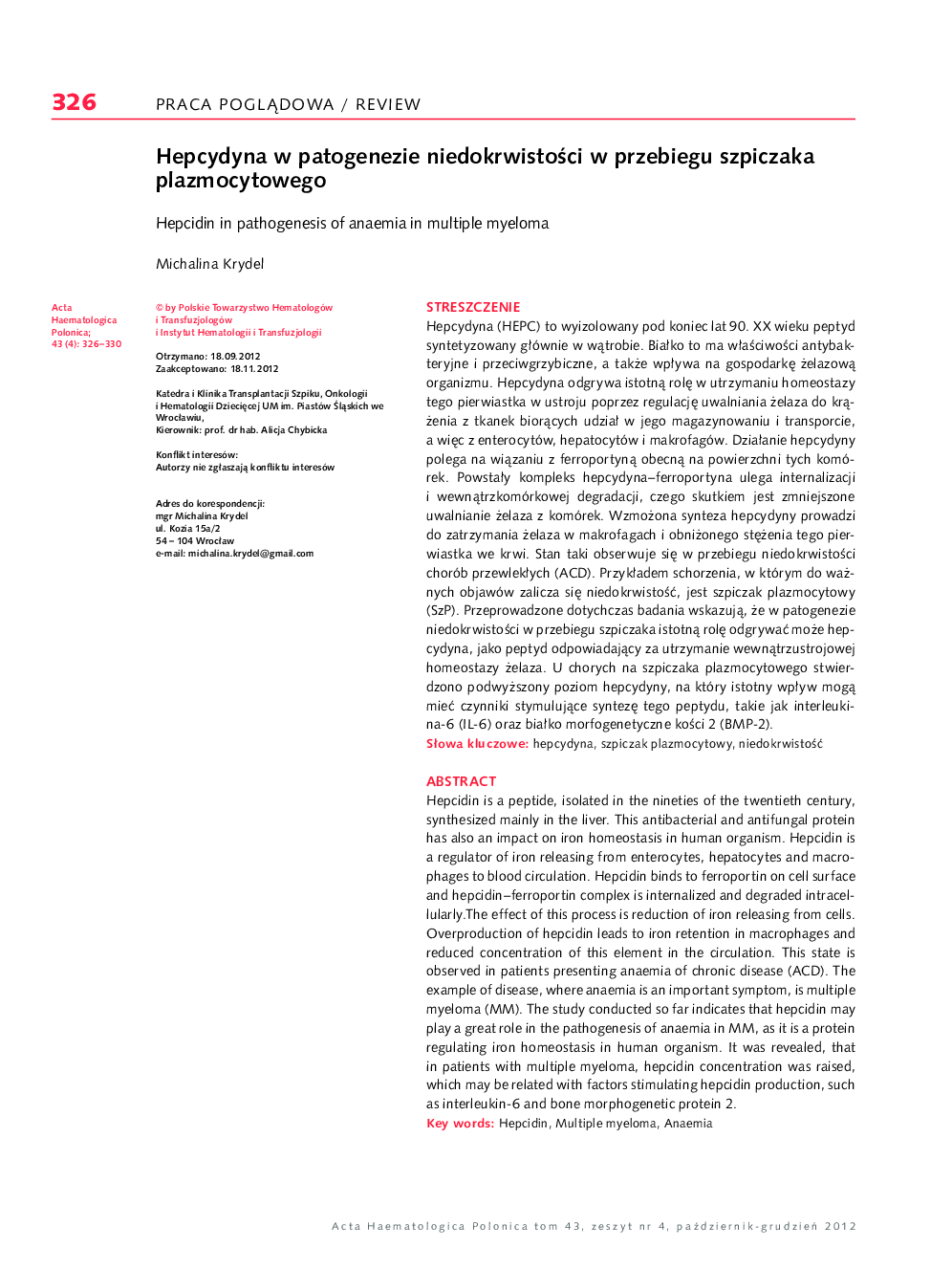| Article ID | Journal | Published Year | Pages | File Type |
|---|---|---|---|---|
| 3328478 | Acta Haematologica Polonica | 2012 | 5 Pages |
Abstract
Hepcidin is a peptide, isolated in the nineties of the twentieth century, synthesized mainly in the liver. This antibacterial and antifungal protein has also an impact on iron homeostasis in human organism. Hepcidin is a regulator of iron releasing from enterocytes, hepatocytes and macrophages to blood circulation. Hepcidin binds to ferroportin on cell surface and hepcidin-ferroportin complex is internalized and degraded intracellularly. The effect of this process is reduction of iron releasing from cells. Overproduction of hepcidin leads to iron retention in macrophages and reduced concentration of this element in the circulation. This state is observed in patients presenting anaemia of chronic disease (ACD). The example of disease, where anaemia is an important symptom, is multiple myeloma (MM). The study conducted so far indicates that hepcidin may play a great role in the pathogenesis of anaemia in MM, as it is a protein regulating iron homeostasis in human organism. It was revealed, that in patients with multiple myeloma, hepcidin concentration was raised, which may be related with factors stimulating hepcidin production, such as interleukin-6 and bone morphogenetic protein 2.
Related Topics
Life Sciences
Immunology and Microbiology
Immunology
Authors
Michalina Krydel,
